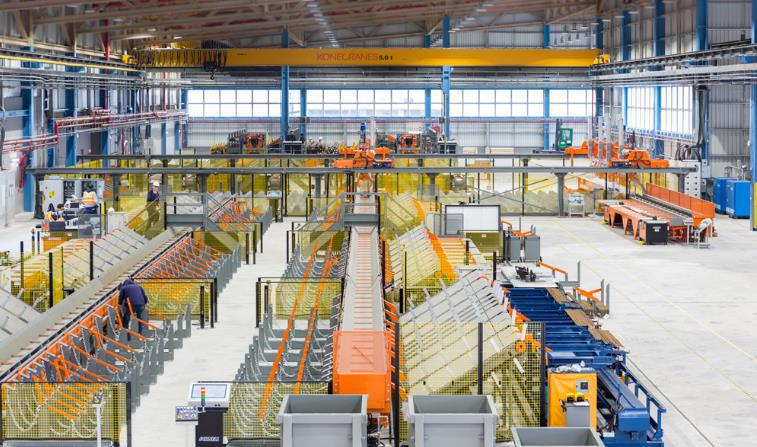Major hurdles for adopting automation technologies include cost effectiveness, lack of knowledge and concerns over people impact
Hong Kong companies may lose their competitive edge if they fail to invest in and adopt automation, finds a joint survey by KPMG China and ACCA Hong Kong.

(Photo: Xinhua)
The survey, titled Hong Kong’s Automated Future, features 388 responses from senior Hong Kong executives, as well as finance and accounting professionals. It analyses the current take-up of automation, with a particular focus on Robotics Process Automation (RPA) – a form of digital labour – implementation within finance functions.
Nearly a quarter of respondents indicated their company is likely to fall behind the competition if they do not adopt RPA. Meanwhile, almost half (49 percent) of respondents said their level of automation was low and was limited to capturing transactional data, while 77 percent said they recognised their firms have further potential to automate manual and repetitive processes. Additionally, only 7 percent of respondents indicated they have an annual budget for robotics and automation.
The survey also highlights sectors that are leading in RPA adoption, including technology, telecommunications, banking and finance. The manufacturing sector was identified as one of the laggards.
Isabel Zisselsberger, Partner and Head of Financial Management, KPMG China, says, “Automation is an opportunity for Hong Kong companies that cannot be missed. Our survey finds that senior executives are demanding greater and faster insights as well as value from finance functions. Meanwhile, the government has introduced a number of initiatives to establish Hong Kong as a regional innovation and technology hub. This includes the recent HKD50 billion earmarked for the development of innovation and technologies.”
Key RPA investment drivers include: refocusing resources on value-added tasks, minimising errors associated with manual processes, as well as cost savings. Respondents also highlighted a number of challenges, for example, perceived benefits do not outweigh costs; lack of knowledge; having sufficient manpower to cover manual or routine work.
Eunice Chu, Head of Policy, ACCA Hong Kong, says, “A lack of knowledge and awareness of new technologies slows adoption of RPA. Many companies, particularly SMEs, do not know where and how to start and, consequently, fear the impact such technologies could have on their businesses.”
“Training is a particularly important area companies should invest in. As new technologies, including robotics automation, continue to grow in Hong Kong, there will be a greater need for staff with knowledge and experience in handling such tools,” adds Chu.
“In order to stay ahead of the competition, companies will need to establish a long-term plan that revolves around training, retraining and redeployment of staff. New Budget measures such as relaxation of the eligibility criteria for the Technology Voucher Programme, and increased subsidies for the Continuing Education Fund, could help both companies and individuals to prepare for the challenges and opportunities arise from automation.”
Hong Kong has the right characteristics to be a leader in the adoption of new technologies. As an international financial, trade and logistics, and professional services hub, the city is home to many businesses that are running complex operations.
Zisselsberger concludes: “To survive and thrive as the digital environment evolves in Hong Kong, businesses will need to develop new skillsets. We advise CFOs and finance teams to start embracing robotics processing and artificial intelligence, using data and analytics and deploying emerging technologies that can transform the function.”


